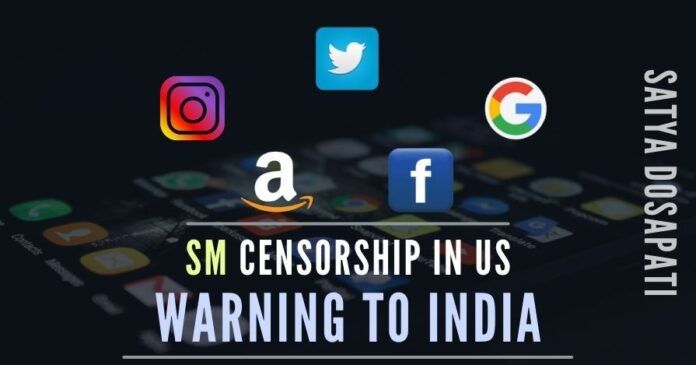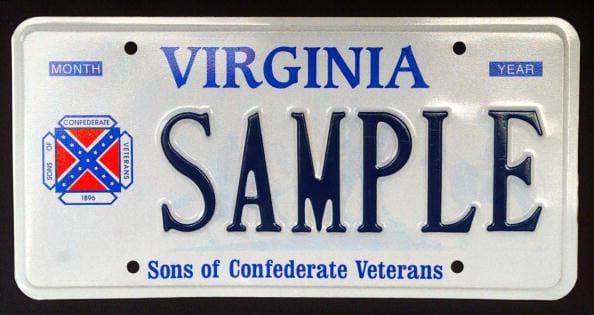Impact Of Social Media Censorship: US Announces Visa Changes

Table of Contents
New Visa Restrictions Based on Social Media Activity
The updated US visa application process now includes significantly increased scrutiny of applicants' social media presence. This represents a substantial shift in how online activity is considered within the immigration context.
Specific Changes to the Application Process
Applicants are now required to disclose social media usernames for the past five years across various platforms, including Facebook, Twitter, Instagram, and others. Failure to comply can result in visa denial. The government states that this information will be used to assess potential threats to national security and public safety. Examples of content that could lead to scrutiny include:
- Extremist views or affiliations: Expressing support for terrorist organizations or engaging in hate speech.
- Violent content: Sharing images or videos depicting violence, or advocating for violence against individuals or groups.
- Misinformation and disinformation: Spreading false or misleading information that could pose a threat to public safety or national security.
- Engagement in criminal activity: Evidence of involvement in illegal activities, whether online or offline.
Applicants will be asked to provide access to their social media accounts, though the exact method of access remains somewhat opaque. While exceptions or waivers might exist for specific cases, the criteria for these remain unclear.
The Rationale Behind the Changes
The US government justifies these changes by citing national security and public safety concerns. The stated goal is to prevent individuals who pose a potential threat from entering the country. However, this raises significant concerns about:
- Increased scrutiny of applicants with histories of expressing controversial opinions online: This could disproportionately affect individuals from marginalized groups or those with dissenting political viewpoints.
- Concerns about potential threats to national security: While legitimate, the definition of "threat" remains subjective and open to interpretation, leading to potential biases in the application process.
- Efforts to prevent individuals who promote violence or extremism from entering the country: This goal is laudable, but the methods employed raise concerns about due process and potential overreach.
The Broader Implications of Social Media Censorship on Immigration
The new US visa policy has far-reaching implications beyond the immediate impact on individual applicants. It highlights the increasingly blurred lines between online activity and real-world consequences.
Impact on Freedom of Speech and Expression
The new regulations create a chilling effect on freedom of speech, particularly for individuals seeking US visas. Applicants may engage in self-censorship, avoiding the expression of potentially controversial views to increase their chances of approval. This raises significant legal and ethical questions about:
- Self-censorship among visa applicants: This restricts the free exchange of ideas and potentially silences dissenting voices.
- Concerns about discrimination based on political views: The subjective nature of content moderation increases the risk of bias and discrimination against specific groups or viewpoints.
- Potential for abuse of the new regulations: The lack of transparency in the application process opens the door to potential misuse and arbitrary decisions.
Global Implications and International Relations
These changes in US visa policy have significant international ramifications. They could strain relationships with other countries that have different views on free speech and online content moderation.
- Diplomatic tensions with countries critical of US social media policies: This could lead to reciprocal actions, impacting visa applications for US citizens.
- Potential for similar restrictions in other countries: The US policy might set a precedent for other nations to adopt similar, potentially more restrictive, measures.
- Impact on international collaborations and exchange programs: Increased scrutiny and restrictions could hinder academic, cultural, and scientific collaborations.
Alternative Perspectives and Criticisms of the New Policy
Numerous human rights organizations and civil liberties groups have criticized the new visa policy. Concerns center on:
- Lack of transparency and due process: The process lacks clarity, making it difficult for applicants to understand the criteria for approval or denial.
- Potential for misinterpretation and inconsistent application of the rules: Subjective interpretations of online content could lead to unfair and inconsistent decisions.
- Difficulty in defining and identifying “dangerous” online content: The criteria for identifying potentially harmful content are vague and susceptible to bias.
However, supporters of the policy argue that it is a necessary measure to enhance national security and protect the public. They emphasize the need to screen out individuals who pose a genuine threat.
Conclusion
The US government’s new visa policy, which incorporates increased scrutiny of social media activity, signals a significant shift in the intersection of social media censorship, immigration, and national security. While aimed at improving safety, the policy raises serious concerns about freedom of speech, potential discrimination, and international relations. The debate over balancing national security with individual rights in the digital age continues, requiring careful consideration of the potential consequences of social media censorship on immigration policies worldwide. Stay informed about further developments in US visa policy and the ongoing discussion on the balance between national security and individual rights. Continue to engage in this vital conversation surrounding the impact of social media censorship.

Featured Posts
-
 Decoding Post Credits Scenes A Guide To Marvel And Sinner
May 30, 2025
Decoding Post Credits Scenes A Guide To Marvel And Sinner
May 30, 2025 -
 Injaz Ryady Dyl Twrw Yusjl Asmh Fy Tarykh Jyrw Iytalya
May 30, 2025
Injaz Ryady Dyl Twrw Yusjl Asmh Fy Tarykh Jyrw Iytalya
May 30, 2025 -
 Maryland Residents And The Problem Of Illegal Vehicle Registrations In Virginia
May 30, 2025
Maryland Residents And The Problem Of Illegal Vehicle Registrations In Virginia
May 30, 2025 -
 San Diegos Inclement Weather Program In Effect Tonight
May 30, 2025
San Diegos Inclement Weather Program In Effect Tonight
May 30, 2025 -
 Preduprezhdenie Mada Kak Podgotovitsya K Ekstremalnym Pogodnym Usloviyam V Izraile
May 30, 2025
Preduprezhdenie Mada Kak Podgotovitsya K Ekstremalnym Pogodnym Usloviyam V Izraile
May 30, 2025
